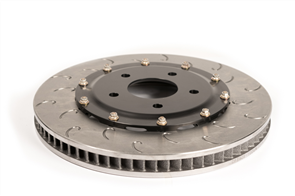Disc Brakes Could Save Your Life!
Does your vehicle have circle brakes? Chances are if it is a genuinely new vehicle it does. Anyway if it's extremely old it could not. Do you have any idea about why vehicle products changed from drum brakes to Disc brakes? The response is security. Circle brakes stop quicker and have less blur than the more seasoned style of drum brakes. We should check the reason why out.
A drum brake seems to be a level Disc with a huge lip. The drum cushions sit inside the drum brake and press against the lip. How a brake works are to change dynamic energy from the movement of the vehicle into heat through the erosion of the brake cushion scouring against the lip of the drum brake. As a result of how the drum brake is bundled, there is no place for the intensity to move toward escape. With the absence of cooling the brake cushion overheats and begins to lose a portion of its capacity to cause erosion with the drum. This is called brake blurring and when a brake begins to fizzle, you can't stop as quickly.
A second issue with drum brakes was the point at which they became wet. The water made the cushion and drum again lose the capacity to make a great deal of rubbing. Furthermore, as we probably are aware, less erosion implies less halting skill.
Notwithstanding its benefit of not blurring as quickly, the Disc brake additionally opposes the issue with water. Since the rotor is uncovered a light press of the cushions against the rotor will dispose of the vast majority of the water. Again this assists the Disc with the slowing mechanism stopping quicker in the wet than a related drum slowing mechanism.
A large portion of the muscle vehicles of the 1960s and mid-1970s were drum brake-prepared. While the proprietors need to keep the vehicles as unique as could be expected, they truly had an excess of force for their slowing down capacity. So you will find a great deal of these vehicles which have been moved up to Disc brakes. It's anything but a hard move up to do, yet since it includes a basic well-being part of a vehicle, it ought to be passed on to a brake proficient specialist to.
Click Here For More Information:-

Comments
Post a Comment